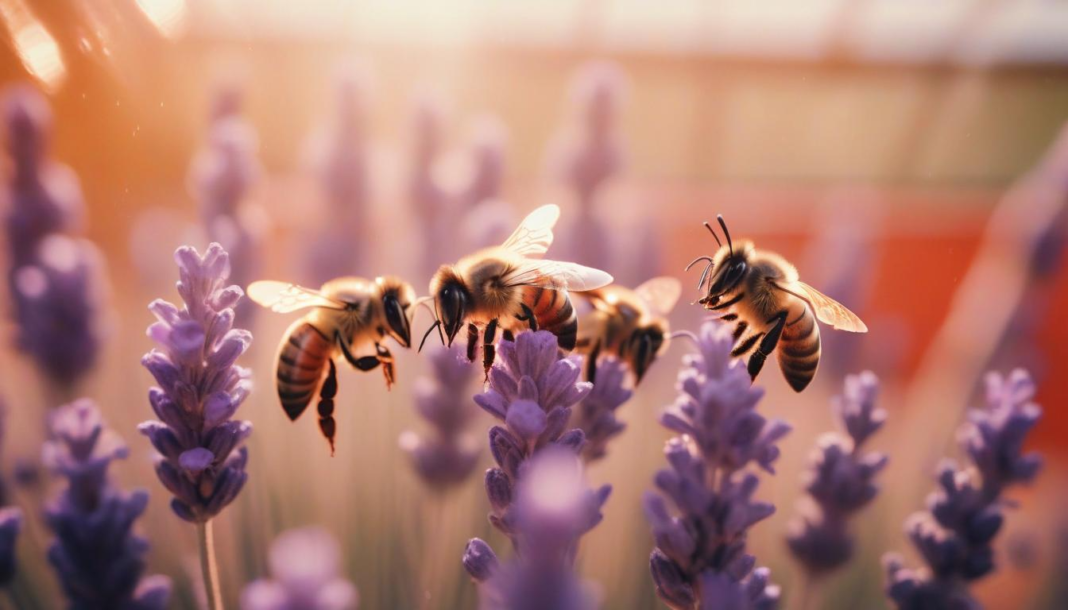Imagine this: you’ve lovingly nurtured your indoor garden, watching your plants grow from tiny seedlings to lush, green beauties. But one day, you notice something alarming—tiny holes in the leaves, sticky residue on the stems, or worse, tiny insects crawling around. Your heart sinks. Pests have invaded your indoor oasis. Before you reach for chemical sprays, consider this: there’s a safer, more sustainable way to protect your plants. Organic pest control is not only effective but also ensures your indoor garden remains a healthy, chemical-free sanctuary. Let’s explore how you can keep your indoor garden thriving without resorting to harmful chemicals.
The Problem with Chemical Pesticides
Chemical pesticides may seem like a quick fix, but they come with a host of problems. They can harm beneficial insects, contaminate your home environment, and even pose health risks to you and your pets. Over time, pests can also develop resistance to these chemicals, making them less effective. Organic pest control, on the other hand, works with nature rather than against it. It’s a holistic approach that keeps your plants healthy while protecting the ecosystem inside your home.
Common Indoor Garden Pests and Their Organic Solutions
1. Aphids
What They Do: These tiny, pear-shaped insects suck the sap from your plants, causing leaves to curl and yellow.
Organic Solution: Spray a mixture of water and a few drops of dish soap directly on the aphids. Alternatively, introduce ladybugs, which are natural predators of aphids.
2. Spider Mites
What They Do: These microscopic pests create fine webs on your plants and suck their juices, leading to speckled leaves.
Organic Solution: Wipe leaves with a damp cloth to remove mites. Increase humidity around your plants, as spider mites thrive in dry conditions.
3. Fungus Gnats
What They Do: These small, flying insects lay eggs in the soil, and their larvae feed on plant roots.
Organic Solution: Let the soil dry out between waterings to discourage gnats. Use yellow sticky traps to catch adult gnats.
4. Mealybugs
What They Do: These white, cottony pests suck sap from plants, causing stunted growth and yellowing leaves.
Organic Solution: Dab mealybugs with a cotton swab dipped in rubbing alcohol. For larger infestations, spray with neem oil.
5. Whiteflies
What They Do: These tiny, white insects feed on plant sap and excrete a sticky substance called honeydew, which can lead to mold.
Organic Solution: Use yellow sticky traps to catch whiteflies. Spray plants with a mixture of water, dish soap, and neem oil.
Preventive Measures: The First Line of Defense
The best way to deal with pests is to prevent them from becoming a problem in the first place. Here are some preventive measures to keep your indoor garden pest-free:
- Inspect New Plants: Before bringing a new plant home, inspect it thoroughly for signs of pests. Quarantine new plants for a week or two to ensure they’re pest-free.
- Keep Plants Healthy: Healthy plants are less susceptible to pests. Ensure your plants get the right amount of light, water, and nutrients.
- Maintain Cleanliness: Remove dead leaves and debris from your plants, as they can harbor pests. Clean your pots and trays regularly.
- Increase Air Circulation: Good airflow helps prevent pest infestations. Use a fan to keep the air moving around your plants.
- Use Sterile Soil: Always use sterile potting soil to avoid introducing pests into your indoor garden.
Natural Remedies for Organic Pest Control
1. Neem Oil
How It Works: Neem oil is a natural pesticide that disrupts the life cycle of pests. It’s effective against aphids, mealybugs, spider mites, and whiteflies.
How to Use: Mix neem oil with water and a few drops of dish soap. Spray on affected plants every 7-10 days.
2. Diatomaceous Earth
How It Works: This fine powder made from fossilized algae dehydrates and kills pests on contact.
How to Use: Sprinkle diatomaceous earth on the soil surface and around the base of your plants. Reapply after watering.
3. Insecticidal Soap
How It Works: Insecticidal soap suffocates soft-bodied pests like aphids and spider mites.
How to Use: Spray directly on pests, ensuring thorough coverage. Avoid using on sensitive plants.
4. Beneficial Insects
How It Works: Introduce natural predators like ladybugs, lacewings, or predatory mites to control pest populations.
How to Use: Release beneficial insects near affected plants. They’ll do the rest!
5. Homemade Sprays
How It Works: Simple ingredients like garlic, chili peppers, and essential oils can repel pests.
How to Use: Blend garlic and chili peppers with water, strain, and spray on plants. Alternatively, mix a few drops of essential oils (like peppermint or eucalyptus) with water and spray.
A Story of Triumph: Sarah’s Indoor Garden
Sarah’s Story
Sarah, a passionate plant lover, was devastated when she discovered her beloved fiddle-leaf fig was infested with spider mites. “I didn’t want to use chemicals because I have a cat who loves to nibble on my plants,” she recalls. After some research, Sarah decided to try organic pest control. She wiped the leaves with a damp cloth, increased the humidity around the plant, and sprayed it with a neem oil solution. Within weeks, the spider mites were gone, and her fiddle-leaf fig was thriving again.
“Going organic was the best decision I made,” Sarah says. “Not only did it save my plant, but it also gave me peace of mind knowing I wasn’t exposing my cat to harmful chemicals.”
Tips for Success with Organic Pest Control
Key Tips
- Be Patient: Organic methods may take longer to show results compared to chemical pesticides, but they’re safer and more sustainable in the long run.
- Monitor Regularly: Check your plants frequently for signs of pests. Early detection makes it easier to control infestations.
- Rotate Remedies: Pests can develop resistance to even organic treatments. Rotate different methods to keep them effective.
- Stay Consistent: Consistency is key. Apply treatments regularly and follow up to ensure pests don’t return.
The Bigger Picture: Why Organic Pest Control Matters
Choosing organic pest control isn’t just about protecting your plants—it’s about creating a healthier home and planet. Chemical pesticides can harm beneficial insects, contaminate water sources, and contribute to environmental degradation. By opting for organic methods, you’re supporting a more sustainable way of living and gardening.
Final Thoughts
Your indoor garden is more than just a collection of plants—it’s a living, breathing ecosystem that brings joy and beauty to your home. Protecting it from pests doesn’t have to mean resorting to harmful chemicals. With organic pest control, you can keep your plants healthy and thriving while staying true to your values of sustainability and environmental stewardship.
So, the next time you spot a pest in your indoor garden, don’t panic. Reach for neem oil, diatomaceous earth, or a homemade spray, and take comfort in knowing you’re doing right by your plants, your home, and the planet. After all, a thriving indoor garden is a testament to the power of nature—and your care. Happy gardening!

